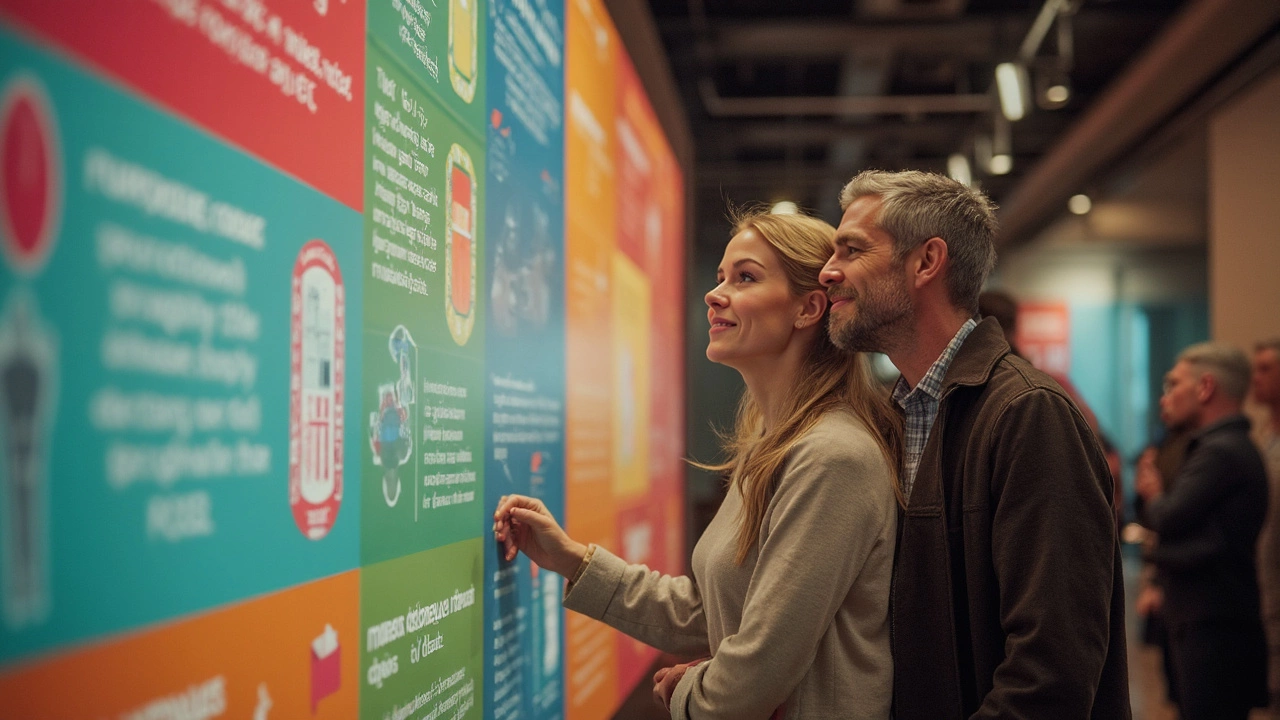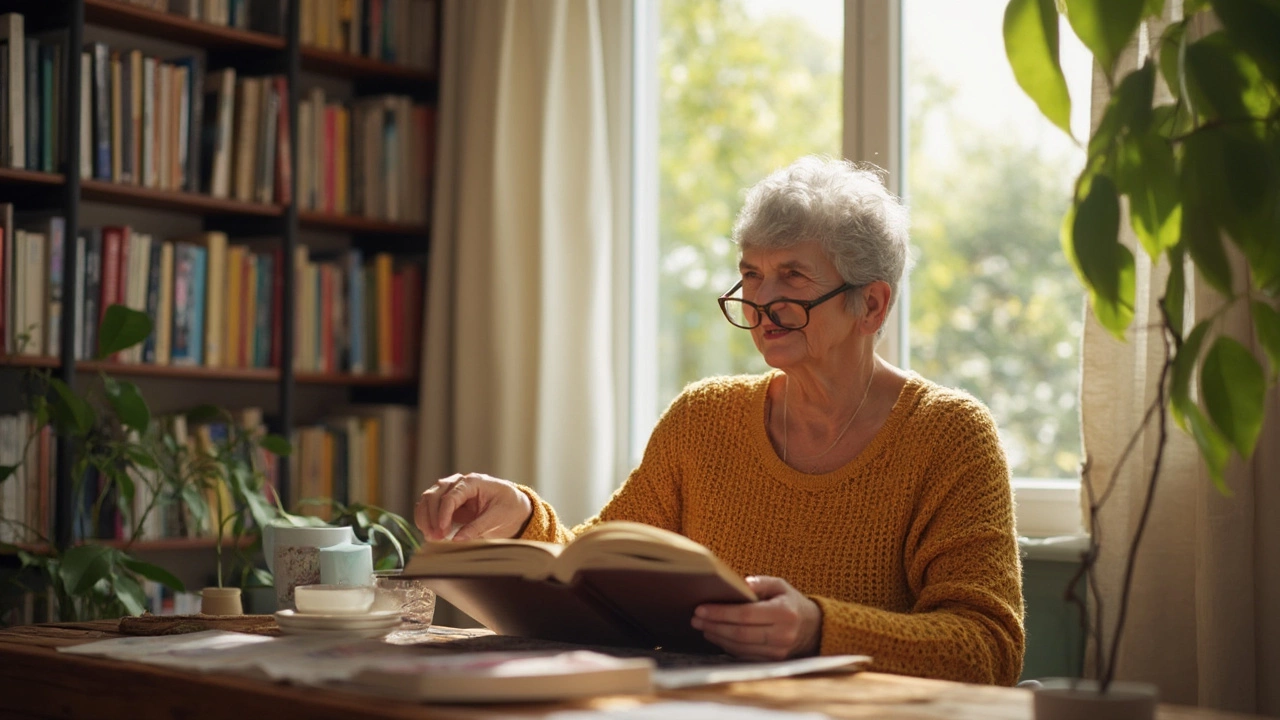Ask someone the last time they actually learned something new about sex, and you'll probably get a shrug—or a sheepish laugh. Most people stop their sex education when school does. But here's the thing: our bodies, needs, and tastes don't freeze in time after secondary school. They grow, shift, and, honestly, sometimes straight up surprise us. Yet we leave the classroom behind and never look back. Ignoring sexual learning as adults isn’t just missing out on saucy tips—it’s closing yourself off to better health, sharper confidence, and deeper connections to yourself and the world around you.
Why Sex Education Never Gets Old
Let’s get real—sexual knowledge isn’t something you tick off a checklist when you turn 18. Our lives, interests, and relationships keep evolving well into our later years. Bodies change with age, stress, birth control, pregnancy, medication, or just trying something different. What worked for you or made sense at 22 is probably not the same story at 32, 45, or beyond.
Think back—how much did your initial sex education actually cover? Most schools offer little more than ‘how not to get pregnant or catch diseases’ and a whiff of biology, leaving out major areas: consent, pleasure, varied relationship models, and navigating adult sexual issues as they pop up. That’s not exactly a recipe for feeling confident or positive about sex.
Adults who keep learning about sex are more likely to stay up-to-date with safe practices, understand evolving expectations around consent, and build open communication with their partners. Modern sex education helps you see that there’s no such thing as ‘normal’—just what works for you. Whether you’re single, committed, exploring new identities, or even seeking out experiences with sex workers, knowledge is power. Better understanding also lowers anxiety—knowing what to expect (and that it’s okay to ask questions) takes the edge off awkward or confusing situations.
If all this sounds like wishful thinking, check out data from the British National Surveys of Sexual Attitudes and Lifestyles. In the most recent round, adults who reported actively learning about sex, past the age of 25, claimed higher relationship satisfaction, less stigma about discussing sexual problems, and a stronger sense of personal agency in bed. They also reported fewer regrets and less likelihood of falling into risky situations. If there was a magic pill that did that, we'd all be taking it.

Breaking Down Adult Sexual Myths and Building Real-World Skills
Let’s bust a popular myth: everyone’s just supposed to ‘figure it out’ as they go along. The reality is, most people feel just as lost as you do in at least one area of their sexual lives. Recognizing that uncertainty is normal opens the door to honest learning and real improvement.
Sex isn’t only about the mechanics or the act itself—it’s about language, trust, and keeping an open line to your own likes and dislikes. Adults sometimes assume they’re supposed to know everything by now or that learning about sex is only for teenagers. That couldn’t be less true.
Changing attitudes and growing awareness around things like consent, LGBTQ+ identities, or kink have reshaped what it means to be a respectful and happy adult in the bedroom. For instance, did you know that since 2014, the number of people exploring non-monogamous relationships has doubled among adults in the UK? Or that learning about pleasure anatomy—like the fact that the clitoris has over 8,000 nerve endings—can actually help couples decrease sexual frustration and increase satisfaction?
Learning about sex as an adult isn’t all theory textbooks and anatomy charts, though that stuff helps. It's about picking up real strategies: how to talk through awkward topics, understanding body language, ensuring mutual satisfaction, and even staying updated on new ways to practice safer sex.
Here’s another under-discussed perk: learning about sex can boost physical and mental health. Studies link satisfying sexuality with lower rates of depression, better body image, and even fewer trips to the doctor for stress-related illnesses. Modern sexual education also helps people unpack shame or anxiety laid down by bad experiences, poor schooling, or stigma. In my own city, Bristol, I’ve seen workshops where couples and singles practice these conversations in a safe, low-pressure space. The relief is almost tangible—nobody’s pretending, and everyone walks away knowing a little more about themselves.
If you’re skittish about where to start, you don’t have to hit the library solo. Sex-positive therapists and educators, online courses, podcasts, and even exploring respectful services—like London escorts—offer new ways to expand your understanding. The point isn’t titillation; it’s dropping shame and gaining self-knowledge. Even revisiting the basics, like consent or safe practices, helps make sure you actually remember (and use!) what you supposedly picked up years ago.

Tips, Resources, and Real-World Habits for Ongoing Sexual Growth
If you’ve stuck with me this far, you probably get the message: there’s no finish line for sexual learning. So let’s talk practical steps—how do you go from silent curiosity to real-world improvement?
Start with yourself. Take ten minutes (seriously, just ten) to write down a list: things you wish you understood better about sex. Maybe it’s how your body reacts, what new things you’re curious about, or why certain situations make you anxious. Once you get honest with yourself, you’ll see there’s no shame in asking questions—just opportunities to find what makes you tick.
Next, talk to your partner or trusted friends, if you have them. The best relationships build on open, sometimes clumsy, sometimes hilarious conversations about sex. Nobody becomes a communication expert overnight. Even admitting “I don’t really know what turns me on lately” builds honesty and often leads to deeper intimacy. If you’re single, find supportive communities—online forums, workshops, or even local meetups for honest, stigma-free discussion.
One super-practical tip: sign up for a webinar, listen to a podcast, or check out a new book a few times a year. Sex educators like Justin Hancock or Emily Nagoski (author of "Come As You Are") turn research into actually helpful, non-cringy advice. Even watching TED Talks on sexual wellbeing can get your wheels turning.
Don’t be afraid to ask professionals. Sex therapists, counselors, and sexual health clinics in the UK keep things confidential and supportive. They handle every question under the sun, from “Am I normal?” to tips for managing mismatched sex drives, trauma, or health conditions.
For people who want direct experience, exploring ethical avenues like connecting with professional sex workers can be a respectful, stigma-free route to learning what you like—especially for those with disabilities, social anxiety, or different relationship structures. These settings can offer adults a fresh perspective on consent, communication, and pleasure without romantic baggage.
There’s also value in the science. According to a 2023 survey, adults engaging in regular sexual education (through coaching, workshops, or reading) reported a 29% increase in confidence discussing preferences with partners. Here’s a handy breakdown that might surprise you:
| Learning Method | Reported Increase in Satisfaction |
|---|---|
| Workshops | 32% |
| Podcasts/Audio | 22% |
| Books or Articles | 17% |
| Therapy/Counseling | 24% |
Test out new ideas safely. You don’t have to dive in headfirst. Try new conversations, experiment with small changes in routine, or role-play scenarios to build self-confidence. The more honest you are about what you don’t know, the more likely you are to fill in those gaps—and enjoy yourself a lot more along the way.
Everyone’s journey is different. Some discover brand-new kinks; some learn to set boundaries better. For others, it’s about finally feeling at peace with who they are and what they want. Sex isn’t static, and learning shouldn’t be either.
Think of it this way: cars, phones, diets—they all get updates. Why shouldn’t your sexual knowledge? The world keeps changing. You deserve to keep up, not just for your partner, but for your own happiness.
